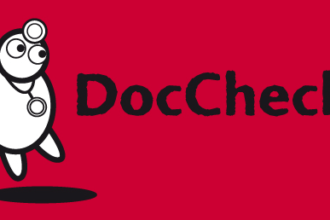 Due to ever increasing healthcare costs, stakeholders in the healthcare system rely heavily upon front-line workers to assist in containing costs to help make healthcare more affordable. Since nursing is the largest sector of front-line workers, the field has an opportunity to greatly impact cost containment.
Due to ever increasing healthcare costs, stakeholders in the healthcare system rely heavily upon front-line workers to assist in containing costs to help make healthcare more affordable. Since nursing is the largest sector of front-line workers, the field has an opportunity to greatly impact cost containment.
 Due to ever increasing healthcare costs, stakeholders in the healthcare system rely heavily upon front-line workers to assist in containing costs to help make healthcare more affordable. Since nursing is the largest sector of front-line workers, the field has an opportunity to greatly impact cost containment. Currently, there are 2.7 million nurses in the workforce, with an expected growth rate of 26% over the next decade; however, there has been limited discussion on how nurses can help contain healthcare costs.
Due to ever increasing healthcare costs, stakeholders in the healthcare system rely heavily upon front-line workers to assist in containing costs to help make healthcare more affordable. Since nursing is the largest sector of front-line workers, the field has an opportunity to greatly impact cost containment. Currently, there are 2.7 million nurses in the workforce, with an expected growth rate of 26% over the next decade; however, there has been limited discussion on how nurses can help contain healthcare costs.
Why are nurses not usually integrated into the cost containment discussion? Why have we not been invited to the table? Likely, it is because we don’t have the power to order (or discontinue) tests, labs, or medications, all of which are major factors in the rising costs of care. Even so, a nursing perspective can be important and should be considered when doctors make treatment decisions.
For example, I recently treated a patient who had undergone abdominal surgery. Despite uncomplicated post-operative days 1 and 2, on day 3, he developed nausea, vomiting, and an increasingly distended abdomen. I administered intravenous anti-nausea medications, along with back rubs and cool cloths on his forehead. None of the treatments worked. While waiting for the doctor, I sat with the patient and spoke to him about the possibility of receiving a nasogastric tube to alleviate his symptoms. Given an understanding of the process, the patient agreed to this possibility and I paged the doctor once again. The doctor eventually placed the nasogastric tube, the tube was connected to suction, and out came a liter of gastric contents.
I then noticed that the doctor had put in an order for an abdominal x-ray to “check nasogastric tube placement.” Seeing this, I initiated a conversation with the doctor to discuss the patient’s symptomatic improvement as well as his current state of exhaustion. I assured the doctor that nurses would be at the patient’s bedside to monitor for signs and symptoms of tube malfunction. As a result, the doctor cancelled the x-ray, which not only eliminated an unnecessary test for the patient, but also reduced the cost associated with his care.
Situations like these are commonplace to nurses across the country. We witness daily that more is not necessarily better, and we are in a position to help make decisions that lower costs without negatively impacting the patient’s care. Nurses bring a unique perspective to the healthcare cost conversation, so include us in the discussions, give us a seat at the table, and utilize us as active participants in the fight against rising healthcare costs.










